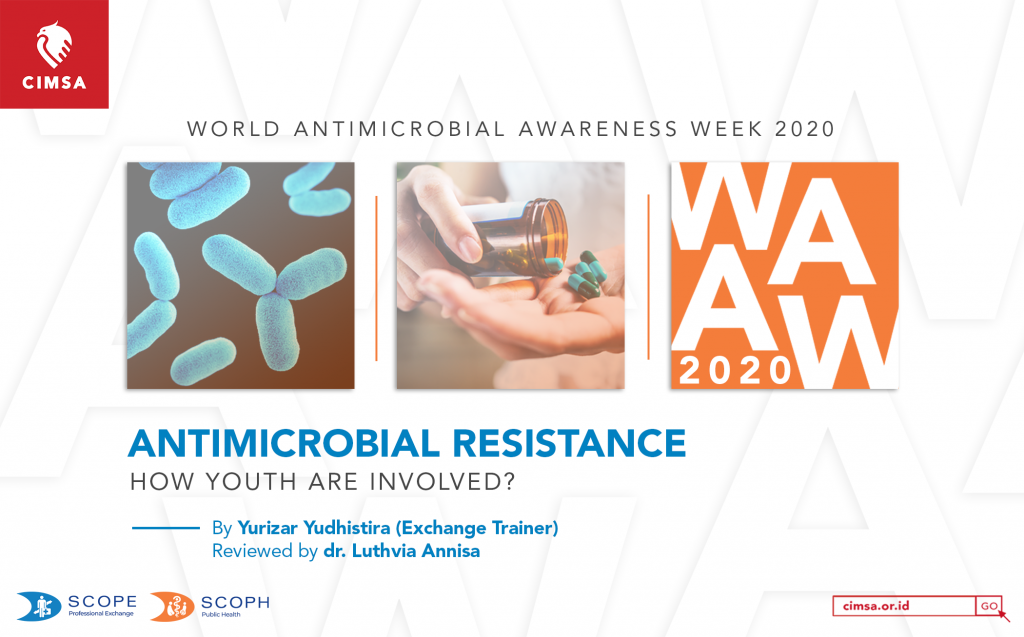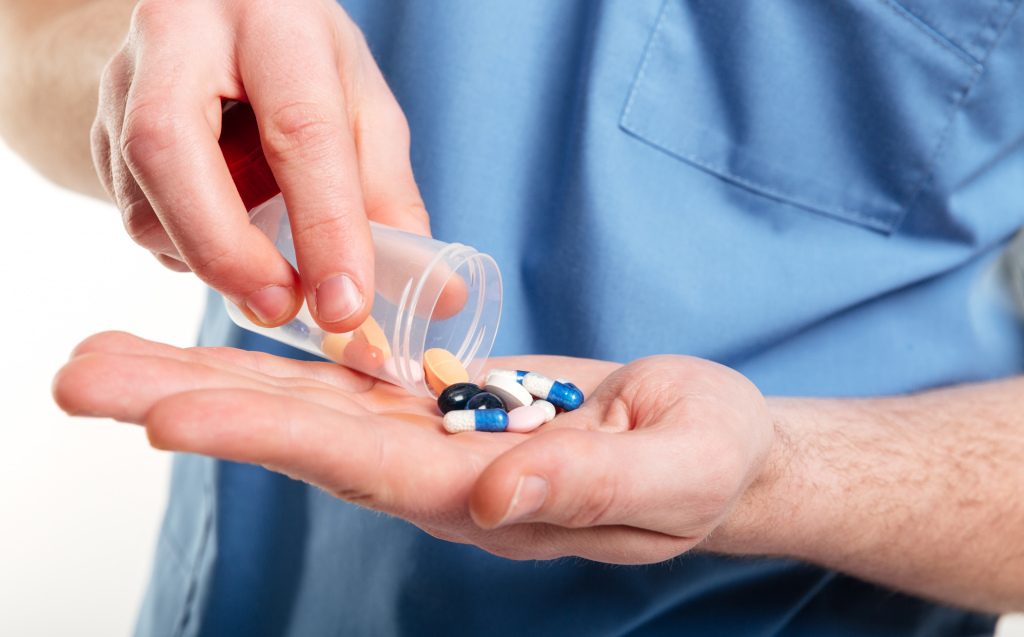
We might start such a topic by addressing questions for you, a future health worker, is antimicrobial resistance an important issue in your community or you just don’t know where to begin in raising such an issue? If you answer yes, then this article might help boost up your concern in antimicrobial resistance and how youth are involved.
The World Health Organization (WHO) defines antimicrobial resistance (AMR) as the ability of microorganisms to become resistant when they are exposed to antimicrobial drugs (e.g. antibiotics, antifungals, antivirals, antimalarials, and anthelmintics) used to treat the infections. They are referred to as “superbugs.” Thus, the medicines become ineffective and cause the infection to persist in the body that will increase the risk of spreading.

According to the Food and Agriculture Organization of the United Nations (FAO), an estimated 700,000 people die each year from antimicrobial resistance. Antimicrobials can be life-saving medicines. However, many regard antimicrobials as the remedy for any infection, and that it can be used without negative consequences. Unfortunately, this is not true. Even though AMR occurs naturally over time through genetic changes, the misuse and extensive overuse of antimicrobials accelerate this process. In many places, antimicrobials are often given without professional oversight and indeed not for their true purposes, such as use for viral infections or being given to animals as growth promoters. Therefore, antimicrobial resistant microbes are easily found in people, animals, food and the environment. Poor infection control, inadequate sanitary conditions, and inappropriate food-handling encourage the spread of AMR.
For those reasons, AMR is a global concern relating to health and socio-economic perspective that endangers the success of achieving Sustainable Development Goals. AMR is affecting the health of patients by making them less likely to recover, require longer hospital stays and an increasing risk of premature deaths. Some infections (e.g. gonorrhea, tuberculosis) are becoming more difficult or even impossible to treat, putting especially vulnerable groups, such as preterm babies or young children, at risk. As more less-effective antimicrobials are available, there is an increased risk in surgical procedures, cancer chemotherapy and organ transplants. Moreover, the risks for an individual are as real as the risk to the community. It can lead to treatment failures, economic losses, additional infections, adverse drug reactions, and resistant bacteria in normal flora.

The spreading of antimicrobial resistance has severe consequences and the problem is growing. Effective antimicrobial treatment can be seen as a global public good and thus should be seen as a global responsibility to protect it through One Health Approach. There is an urgent need to tackle the problem now to prevent the medicine from falling back into the pre-antibiotic era. At the 68th World Health Assembly held in May of 2015, a global action was endorsed to tackle antimicrobial resistance. It was guided by the advice of countries and key stakeholders, based on several multi stakeholder consultations at different global and regional forums. The goal is to ensure, for as long as possible, continuity of successful treatment and prevention of infectious diseases with effective and safe medicines that are quality-assured, used in a responsible way, and accessible to all who need them.
As youth, we need to equip ourselves with the knowledge and the skills to take on active roles at local and global level, to start a campaign, and to be networking with the right stakeholders for reaching goals and objectives. Always remember that fighting AMR through this approach is a thorough, extended and extensive process. Even so, inspiring progress is a journey and never a one act show. Keep empowering to improve the nation’s health by educating patiently, advocate passionately and inspire constantly.
References
https://www.who.int/en/news-room/fact-sheets/detail/antimicrobial-resistance
https://www.cdc.gov/drugresistance/about.html
https://www.who.int/features/qa/one-health/en/
https://www.who.int/antimicrobial-resistance/global-action-plan/en/
https://ifmsa.org/wp-content/ uploads/2017/09/3.-201611_Advocacy-Toolkit-on-AMRhttps://ifmsa.org/wp-content/ uploads/2017/09/3.-201611_Advocacy-Toolkit-on-AMR
https://ifmsa.org/2017/12/02/whsa-advocates-youth-action-antimicrobial-resistance/
